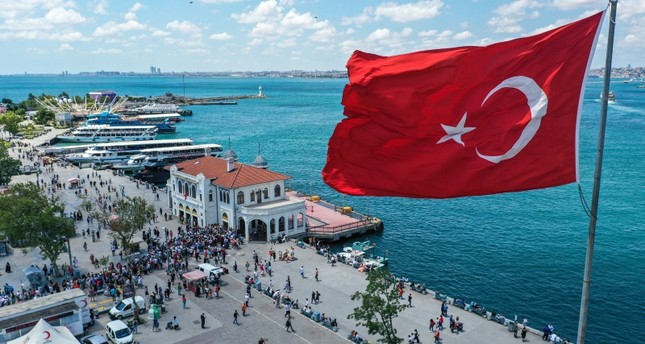Turkey's unemployment rate edged up to 10.2% in October, data showed on Monday, posing a potential challenge to President Tayyip Erdogan's re-election hopes next year, even as inflation is set to dip and the currency should remain largely stable.
Economic growth is also expected to keep cooling to below trend levels ahead of presidential and parliamentary elections to be held in May or June, more than 20 years after Erdogan and his AK Party first came to power.
Turkish officials and analysts said jobs and GDP posed election wildcards for the president, whose pro-growth political reputation has been bruised in recent years as inflation soared and the lira cratered to historic lows.
"Especially before the elections, employment is a problematic situation," said one senior Turkish economy official, requesting anonymity to speak openly.
In response to a currency crash a year ago, authorities adopted a policy of tightly controlling foreign exchange, and officials expect the lira to remain steady well into 2023.
In another relief for Erdogan - who faces a tight vote according to opinion polls - annual inflation is expected to drop to about 40% by election time, from 85% currently.
JPMorgan analysts expect inflation to hit 40% by mid-2023 and then rebound largely due to pre-vote fiscal stimulus. They said inflation "has had a massive impact on real wages", adding they will further hinge on an expected hike to the minimum wage.
The jobless rate rose 0.1 percentage point month-on-month to 10.2% in October, up from a more than four-year low of 9.8% in August, the Turkish Statistical Institute data showed.
Youth unemployment climbed nearly two points to just below 22%, a potential concern given that there will be six million first-time voters next year and with a big majority of young Turks saying they want change.
Adding to employment pressures, a hefty hike in administered wages could lead to layoffs early next year, while economic growth is starting to ease after an annual expansion of 3.9% in the third quarter.
"There is likely to be lower growth in the final quarter compared to the third quarter. But the main problem is the first quarter of next year under current conditions," the economy official said.
Four analysts surveyed by Reuters forecast May inflation would be in a range of 35% to 43% unless there is a fresh lira depreciation.











